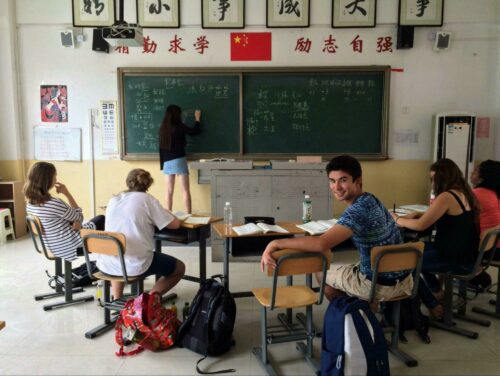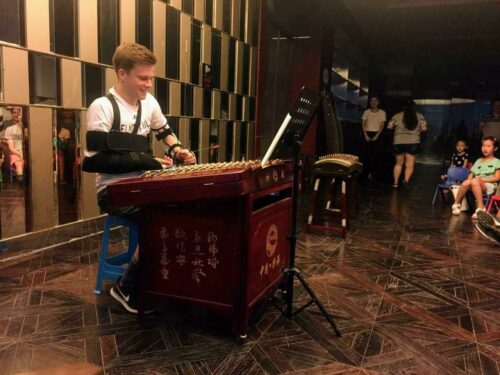William McCormack, Chinese (Mandarin)
William is an alum of the 2016 NSLI-Y Chinese (Mandarin) Summer Program from Boston, Massachusetts. After the NSLI-Y Program he majored in East Asian Studies and Economics.
In February, I was lucky to attend the NSLI-Y Alumni Leadership Workshop in Washington, D.C. Roughly two dozen of us NSLI-Y alumni — spanning years and target languages, including Korean, Russian, Turkish, Arabic, and Chinese like me — convened for a morning session at the American Councils headquarters and an afternoon visit to the U.S. State Department. Reconnecting with NSLI-Y and meeting other alumni at the workshop reminded me how valuable my NSLI-Y experience was for me academically and personally.
It has been nearly seven years since I was on the program with NSLI-Y in Xi’an, China during the summer of 2016. It doesn’t feel that long, especially because that summer significantly influenced the academic trajectory I’ve followed since. In 2016, I arrived in Xi’an with only a couple of years of classroom Mandarin; I returned to my high school in Boston with an interest in urban China and the desire to keep improving those language skills. These interests stuck with me in college, where I majored in East Asian Studies (and Economics) and continued to learn Mandarin. I graduated this past December after completing my senior thesis on gig-economy food-delivery drivers in Chinese cities.

But rather than hard language skills, the workshop in D.C. this past February highlighted the intangible skills that NSLI-Y gives its participants. To kick off the workshop, a government and leadership professor guided us through a series of brain games and anecdotes to argue that unfamiliar experiences improve brain performance. Forget about verbs or dialogue or grammar; the mere act of being immersed in a new country while studying a new language unlocks cognitive gains.
This leader stressed the importance of “training yourself to get outside of yourself.” On my NSLI-Y program in 2016, there was no training needed for that. The summer packed in so much newness for a new 16-year-old: a host family I had never met, new routines, new food, a new city, and new American NSLI-Y classmates from across the country. A general sense of openness came to us naturally. Adapting to the unfamiliar, the unplanned, and the unexpected began to feel automatic.

Two weeks into the summer, I suddenly needed to put those skills and that mindset into action. While playing volleyball one Friday afternoon after classes, I landed hard diving for a ball, breaking both my arms. My host family drove me to a hospital for X-rays. I left with my arms wrapped up in slings.
I spent the weekend in my host family’s apartment resting — listening to music and podcasts, video-chatting with my parents back home, and wondering how the rest of the summer might go with two limbs temporarily out of commission. But when Monday came around, my summer continued on.

Other than not being able to hand-write characters, I don’t remember many interruptions. I took part in the same excursions, rode the buses and metro, managed to play instruments, and figured out how to scoop up noodles with chopsticks that became extensions of my bionic arms. Two weeks of my NSLI-Y program had accustomed me to so much newness that my body registered the situation as just another new experience. I was somehow open to the unexpected and agile enough to chug along with an enjoyable, productive summer.

I see photos of myself from that summer now and wonder how I managed. The openness and adaptability that came so easily on NSLI-Y can sometimes feel elusive among more familiar surroundings at home. Attending the Alumni workshop reminded me to try and resharpen those intangible skills — as it was stressed to workshop participants, to be systematic in pursuing serendipity and to train myself to get outside of myself.
